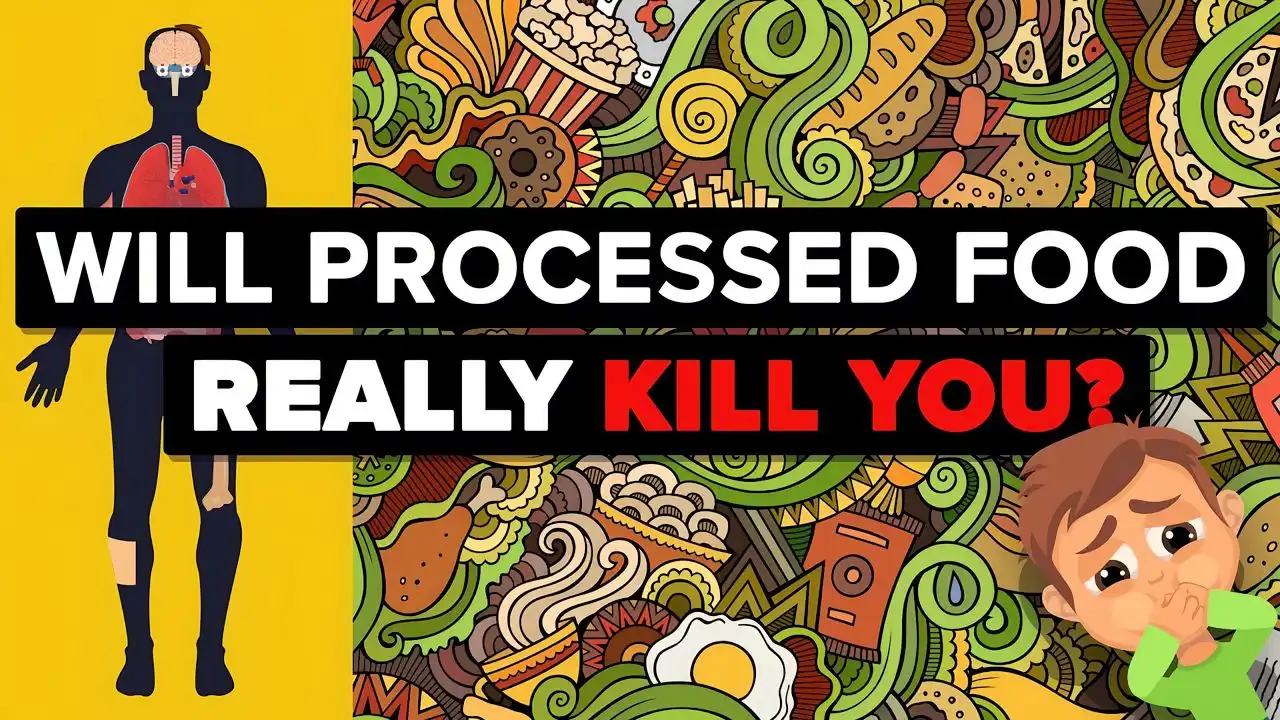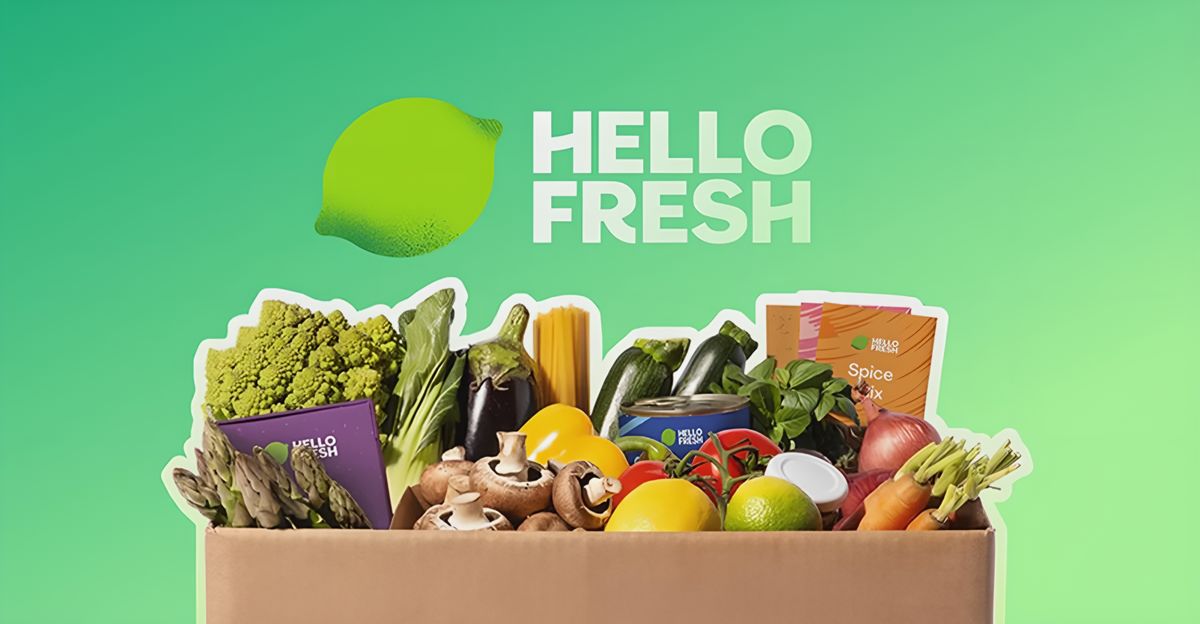How Ultra-Processed Foods Are Killing You!
In our fast-paced, convenience-driven society, ultra-processed foods (UPFS) have become an integral part of the modern diet. These foods dominate grocery store shelves, fast food menus, and even school cafeterias. Marketed as quick, affordable, and tasty, they promise convenience—but at what cost?
Emerging research reveals the disturbing health consequences associated with these highly engineered products. From chronic diseases to mental health disorders, the dangers of ultra-processed foods are far-reaching and deeply concerning. This post explores what ultra-processed foods really are, the science behind their health risks, and practical steps you can take to reduce their impact on your life.
Video Credits To : https://www.youtube.com/@KianaDocherty
What Are Ultra-Processed Foods?
Ultra-processed foods are products that have undergone industrial processing far beyond what’s done in home kitchens. They typically contain additives like artificial flavours, colourings, preservatives, emulsifiers, and sweeteners—not ingredients you’d find in your pantry.
Examples include:
- Sugary breakfast cereals
- Packaged cookies, cakes, and snacks
- Soda, energy drinks, and sweetened juices
- Instant noodles and microwave meals
- Fast food burgers, nuggets, and fries
- Flavoured yoghurt with additives
These foods are often calorie-dense but nutrient-poor, making them a poor foundation for long-term health.
The Health Risks of Ultra-Processed Foods
A growing body of scientific literature confirms that diets high in ultra-processed foods are strongly associated with a range of serious health problems. Here’s what the research shows:
1. Heart Disease
A 2023 review published in The BMJ found a 50% higher risk of heart disease-related death among individuals who consumed large amounts of ultra-processed food. These foods are often high in sodium, trans fats, and refined sugars—ingredients that damage blood vessels and elevate blood pressure.
2. Obesity and Type 2 Diabetes
UPFS are engineered to be hyper-palatable, often overriding natural satiety signals and encouraging overeating. The result? A significantly higher risk of obesity and insulin resistance, which are major drivers of type 2 diabetes.
3. Mental Health Disorders
There’s growing evidence that diets high in ultra-processed food may be linked to anxiety, depression, and even cognitive decline. A study published in Public Health Nutrition found a 48–53% higher risk of depression among individuals consuming the most ultra-processed food.
4. Cancer and Early Death
A large-scale study from France, known as NutriNet-Santé, found that a 10% increase in the proportion of UPFS in the diet was associated with a 12% increased risk of cancer and a 21% higher risk of all-cause mortality.
Why Are Ultra-Processed Foods So Harmful?
Several biological and behavioural mechanisms explain their negative impact:
- High Glycemic Load: Many UPFS cause rapid spikes in blood sugar, increasing the risk of insulin resistance.
- Inflammation: Additives and poor-quality fats in UPFs promote low-grade inflammation, which is a root cause of many chronic diseases.
- Gut Microbiome Disruption: Artificial sweeteners and emulsifiers may alter the gut microbiota, leading to digestive and metabolic issues.
- Behavioural Addiction: The combination of sugar, salt, and fat can hijack the brain’s reward system, promoting cravings and dependency.
The Economic and Social Costs
The overconsumption of ultra-processed foods impacts individuals and burdens entire healthcare systems. In the U.S. alone, diet-related chronic diseases like heart disease, obesity, and diabetes cost the economy over $1 trillion annually in lost productivity and healthcare expenses.
Additionally, ultra-processed food disproportionately affects low-income communities, where access to fresh, whole foods is limited. This creates a cycle of poor nutrition and poor health that can persist across generations.
How the Food Industry Fuels the Crisis
The rise of ultra-processed foods is not accidental—it’s driven by powerful marketing and lobbying from the food industry. These companies invest billions in advertising, often targeting children and vulnerable populations. Front-of-package claims like “low fat,” “high protein,” or “sugar-free” can be misleading, masking the reality of highly processed ingredients.
Moreover, many UPFS are designed by food scientists to be addictive, ensuring repeat purchases and boosting profits at the expense of public health.
What You Can Do: Tips for Reducing Ultra-Processed Foods
Reducing ultra-processed food in your diet doesn’t require a complete overhaul overnight. Here are practical, sustainable strategies to take control of your diet:
1. Shop the Perimeter of the Grocery Store
Fresh produce, lean meats, dairy, and whole grains are usually found around the edges of the store. Avoid the centre aisles, where most processed snacks and packaged meals are located.
2. Read Ingredient Lists
If a product has more than five ingredients—or contains things you can’t pronounce—it’s likely ultra-processed. Look for foods with simple, whole-food ingredients.
3. Cook at Home More Often
Home-cooked meals using whole ingredients give you full control over what goes into your body. Even basic recipes can be more nutritious than ready-made options.
4. Prepare Healthy Snacks in Advance
Avoid vending machine temptations by prepping healthier snacks like fruit, nuts, or homemade granola bars.
5. Limit Sugary Beverages
Sodas and energy drinks are among the most harmful ultra-processed items. Replace them with water, herbal teas, or infused water with lemon and mint.
Transitioning to a Whole-Food Diet
Shifting away from ultra-processed foods can feel overwhelming at first, but it becomes easier with time. Focus on progress, not perfection. Start by replacing one ultra-processed item per day with a whole-food alternative. Small changes lead to significant health outcomes over time.
Frequently Asked Questions (FAQS)
Q: Are all processed foods bad?
No. Minimal processing (like freezing or pasteurising) can preserve nutrients. The issue lies with ultra-processed foods, which contain artificial additives and little to no nutritional value.
Q: What are the best foods to eat instead of ultra-processed ones?
Focus on whole foods: fresh fruits and vegetables, whole grains (like oats and brown rice), legumes, nuts, seeds, lean meats, and eggs.
Q: Can you lose weight by cutting out ultra-processed foods?
Absolutely. Many people experience weight loss, reduced cravings, and more energy when they replace UPFS with whole, nutrient-dense foods.
Final Thoughts
The disturbing reality of ultra-processed foods is becoming harder to ignore. While these products may offer convenience, they come at a high cost to our physical and mental health. The good news is that change is possible—and it starts with awareness.
By choosing whole foods, reading labels, and questioning marketing claims, you can take meaningful steps toward a healthier, longer life. It’s time to prioritise nourishment over convenience and reclaim control over what’s on our plates.













